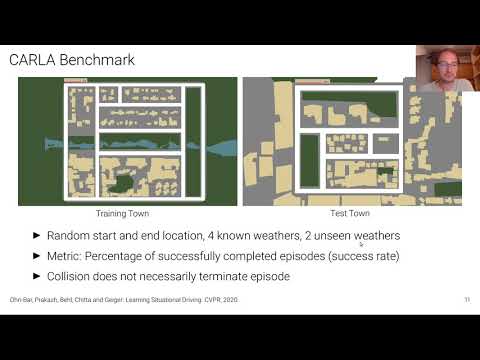Description:
Explore a keynote presentation on developing robust driving policies for autonomous vehicles, delivered at the CVPR Workshop on Autonomous Driving. Delve into two cutting-edge approaches that achieve state-of-the-art performance in the CARLA simulator. Discover a novel framework for situational driving policies that adapts to diverse scenarios, resulting in a 98% success rate on the CARLA driving benchmark. Examine the challenge of covariate shift in imitation learning and learn about a new technique that improves generalization by sampling critical states and using a replay buffer. Analyze the performance results on various CARLA benchmarks, including the NoCrash benchmark with dense traffic conditions. Gain insights into the importance of mixture models, task-based refinement, and emergent driving modes in developing robust autonomous driving systems.

Learning Robust Driving Policies
Add to list
#Computer Science
#Artificial Intelligence
#Autonomous Vehicles
#Autonomous Driving
#Machine Learning
#Reinforcement Learning
#Imitation Learning